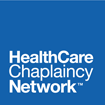Fundamentals of Spiritual Care in Palliative Care
Course Author: Sue Wintz, M.Div., APBCC, BCC
This self-guided course, Fundamentals of Spiritual Care in Palliative Care, is for chaplains, other health care providers, chaplaincy and students of all disciplines, and community religious, spiritual, existential, and cultural leaders who are new to palliative care teams. The course provides skills and knowledge specific to the importance of spirituality as a core element in the provision of palliative care.
Self-guided courses include the latest research available for the intersection of spirituality into the course topic. Students have full access to a purchased course for six months to work at their own pace. There is one test at the end of the course, and participants will have three attempts to pass or fail. Upon successful completion, students earn a certificate of completion and continuing education hours.
Learning Objectives
By the end of this course, the learner will be able to:
- Integrate the history, current philosophy, and goals of palliative care into practice.
- Articulate and integrate current evidence for the provision of chaplaincy/spiritual care in palliative care.
- Provide patient-centered, family-focused chaplaincy care that understands and respects diversity in all its dimensions.
- Apply culturally appropriate, evidence-informed strategies for communicating with patients and families regarding pain and suffering, loss, complicated and anticipatory grief, and life review.
- Facilitate care decisions based on a working knowledge of patient and family cultural and religious attitudes, beliefs, and practices in collaboration with other health care professionals.
- Demonstrate working as a member of the palliative care team in liaison with the patient’s community religious, spiritual, existential, and cultural Leaders and/or other community religious/spiritual and cultural resolution.
- Develop a working knowledge of ethical and legal issues in palliative care.
- Demonstrate a working knowledge of the chaplain’s role in a clinical ethics consultation (CEC), ethics committee, or ethics service.
- Articulate ways in which ethical frameworks may differ across cultural, religious, gender, geographic, and other groups and how those differences may impact ethical deliberation and decision-making.
- Demonstrate a working knowledge of the medical model and the scope of practice of various health care professionals on the palliative care team.
- Advocate for the incorporation of interprofessional spiritual care in institutional culture.
- Utilize a working knowledge of the key physical, psychological, and social issues/principles in palliative care sufficient to effectively communicate with other palliative care team members.
- Articulate important spiritual, existential, and emotional concepts for patients and families in palliative care, including faith, hope, forgiveness, meaninglessness, and remorse.
- Apply culturally appropriate, evidence-informed strategies for communicating to patients and families regarding pain and suffering, loss, complicated and anticipatory grief, and life review.
- Utilize evidence-informed practices to help patients and families in palliative care address fears and spiritual and other distress related to life limiting and end-of-life care.
- Apply best practices in spiritual assessment and documentation to help determine and communicate interdisciplinary care plans.
- Participate in quality improvement projects.
- Distinguish between stress and burnout and identify self-care strategies for optimal personal and work functioning.
- Describe the scope of research areas in palliative care chaplaincy, from well-being, to advance care planning, to household economics, and social policy.
Course Outline
- History and Philosophy of Hospice and Palliative Care.
- Social and Cultural Influences on Palliative Care.
- Ethics and Common Palliative Care Issues.
- Chaplain and Spiritual Care Leadership as Mentorship.
- Professional Wellness While Working in Palliative Care.
- Family Systems and Group Facilitation.
- Spiritual, Existential, and Emotional Issues.
- Palliative Care Research and the Chaplain
Number of Continuing Education Hours: 30
Number of Continuing Education Hours for Spiritual Care for Nurses: 12
The Spiritual Care Association Nursing Division is accredited as a provider of nursing professional development by the American Nurses Credentialing Center’s Commission on Accreditation.
Aligns with the following Quality Indicators in What is Quality Spiritual Care in Health Care and How Do You Measure It? (HCCN. 2016).
- Process Indicator 2.A. Specialist spiritual care is made available within a time frame appropriate to the nature of the referral.
- Process Indicator 2.B. All clients are offered the opportunity to have a discussion of religious/spiritual concerns.
- Process Indicator 2.C. An assessment of religious, spiritual, and existential concerns using a structured instrument is developed and documented, and the information obtained from the assessment is integrated into the overall care plan.
- Process Indicator 2.D. Spiritual, religious, cultural practices are facilitated for clients, the people important to them, and staff.
- Process Indicator 2.E. Families are offered the opportunity to discuss spiritual issues during goals of care conferences.
- Process Indicator 2.F. Spiritual care is provided in a culturally and linguistically appropriate manner. Clients’ values and beliefs are integrated into plans of care.
- Process Indicator 2.G. End of life and Bereavement Care is provided as appropriate to the population served.

